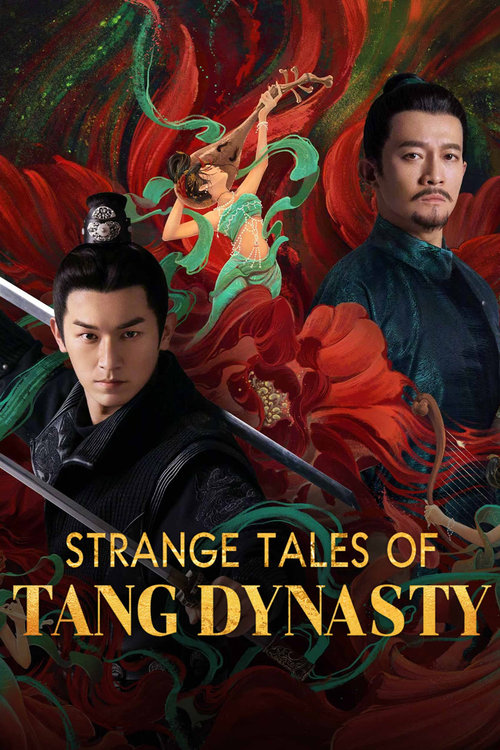
Ask Your Own Question
What is the plot?
In "Histories & Lore: The Order of the Maesters," the episode begins with a narration that introduces the Maesters of the Citadel, a scholarly order dedicated to the pursuit of knowledge and the service of the realm. The Maesters are depicted as learned men who wear chains made of various metals, each representing a different field of study. The episode emphasizes their role as advisors, healers, and scholars throughout Westeros.
The narrative then delves into the origins of the Maesters, explaining how they were formed after the fall of the Valyrian Freehold. The need for a centralized body of knowledge became apparent, leading to the establishment of the Citadel in Oldtown. The Maesters are shown to be committed to the preservation of history and the advancement of learning, often traveling to serve lords and ladies across the Seven Kingdoms.
As the episode progresses, it highlights the rigorous training that prospective Maesters undergo. Young initiates, known as "novices," are depicted studying various subjects, including medicine, history, and the arcane arts. The process is shown to be demanding, with the novices required to master a wide array of disciplines before they can earn their chains. The emotional weight of their dedication is palpable, as they sacrifice personal lives for the pursuit of knowledge.
The episode also touches on the Maesters' relationship with the ruling houses of Westeros. It illustrates how they serve as advisors, often influencing key decisions made by lords and ladies. The Maesters are portrayed as neutral figures, dedicated to their oaths, yet their influence can sway the course of events in the realm. The tension between their duty to serve and the political machinations of the nobility is explored, showcasing the complexities of their role.
A significant portion of the episode is dedicated to the Maesters' contributions to medicine and healing. The narrative describes their extensive knowledge of herbs and remedies, as well as their practices in treating the sick and wounded. The emotional stakes are high, as the Maesters often find themselves in dire situations, making life-and-death decisions that weigh heavily on their consciences.
The episode concludes with a reflection on the legacy of the Maesters. It emphasizes their commitment to knowledge and the preservation of history, even as the realm faces turmoil and conflict. The Maesters are depicted as steadfast guardians of wisdom, their chains symbolizing the burdens they carry in their quest to serve the realm. The final scenes evoke a sense of reverence for their dedication, leaving viewers with a deeper understanding of the Order of the Maesters and their pivotal role in the world of Westeros.
What is the ending?
In "Histories & Lore: The Order of the Maesters," the episode concludes with a detailed exploration of the Maesters' role in Westeros, emphasizing their commitment to knowledge and service. The Maesters, who are scholars and healers, are depicted as the keepers of history and lore, dedicated to the pursuit of wisdom and the betterment of society. The episode ends with a reflection on the importance of their work, highlighting the tension between knowledge and power in the realm.
As the episode unfolds, it begins with a sweeping view of the Citadel in Oldtown, a grand structure filled with towering shelves of books and scrolls. The camera pans through the vast library, showcasing the Maesters' dedication to preserving the history of Westeros. The narrator's voice resonates, explaining the origins of the Maesters, who were once linked to the Faith of the Seven but evolved into a distinct order focused on education and healing.
The scene transitions to the training of young acolytes, who are seen diligently studying under the watchful eyes of their Maester mentors. The acolytes are depicted as eager and curious, their faces illuminated by the flickering light of candles as they pore over ancient texts. The emotional weight of their commitment to learning is palpable, as they aspire to become Maesters themselves, driven by a desire to serve the realm.
Next, the episode delves into the various roles that Maesters play across the Seven Kingdoms. We see them in castles, advising lords and ladies, their presence a blend of authority and humility. The Maesters are portrayed as wise figures, often caught in the crossfire of political intrigue, their knowledge sought after yet sometimes disregarded by those in power. The tension between their scholarly pursuits and the harsh realities of the world around them is evident, as they navigate the complexities of loyalty and duty.
The narrative then shifts to the Maesters' commitment to healing, showcasing their skills in medicine and the use of herbs. Scenes of them tending to the sick and wounded highlight their compassion and dedication to the well-being of the people. The emotional stakes rise as we witness the struggles they face in a world rife with conflict, where their efforts to save lives are often met with the brutality of war.
As the episode draws to a close, the focus returns to the Citadel, where the Maesters gather to discuss the future of their order. The atmosphere is charged with a sense of purpose, as they reflect on the importance of knowledge in shaping the fate of Westeros. The final moments emphasize the enduring legacy of the Maesters, their commitment to preserving history, and the vital role they play in the ongoing narrative of the realm.
In summary, the episode concludes with a powerful reminder of the Maesters' significance in Westeros, their unwavering dedication to knowledge, and the intricate balance they must maintain between wisdom and the tumultuous world around them. The fate of the Maesters is one of continued service, as they remain steadfast in their mission to educate and heal, even amidst the chaos of the Seven Kingdoms.
Is there a post-credit scene?
In the episode "Histories & Lore: The Order of the Maesters" from the Game of Thrones specials, there is no post-credit scene. The episode focuses on the history and functions of the Maesters, detailing their role in the realm of Westeros. It explores their training at the Citadel, the significance of their chains, and their commitment to knowledge and service. The narrative is rich with visual imagery of the Citadel's vast library, the intricate chains representing different fields of study, and the solemnity of the Maesters' duties. However, it concludes without any additional scenes or content after the main feature.
What is the role of the Maesters in the Seven Kingdoms?
The Maesters serve as scholars, healers, and advisors throughout the Seven Kingdoms. They are trained at the Citadel in Oldtown, where they learn various disciplines such as medicine, history, and magic. Each Maester is assigned to a noble house, providing counsel and knowledge, while also serving as a link to the vast archives of the Citadel.
Who is the most notable Maester in the series and what are his contributions?
Maester Aemon is one of the most notable Maesters in the series. He serves at the Wall with the Night's Watch and is known for his wisdom and experience. Aemon's contributions include advising Jon Snow and other members of the Night's Watch, as well as sharing his knowledge of the history of the Night's Watch and the threats they face from beyond the Wall.
What is the significance of the chain worn by Maesters?
The chain worn by Maesters symbolizes their knowledge and the disciplines they have mastered. Each link represents a different field of study, such as healing, history, or warfare. The more links a Maester has, the more areas of expertise they possess, showcasing their dedication to learning and service.
How do the Maesters view magic and its place in the world?
The Maesters generally view magic with skepticism and caution. They believe that it is a relic of the past and often dismiss it as superstition. This perspective is rooted in their commitment to rationality and knowledge, which leads them to prioritize science and reason over the mystical elements of the world.
What is the relationship between the Maesters and the Targaryens?
The relationship between the Maesters and the Targaryens is complex. Historically, the Targaryens relied on the Maesters for counsel and knowledge, especially during their reign. However, as the Targaryen dynasty weakened, the Maesters' influence grew, leading to tensions, particularly as the Maesters often supported the interests of the realm over the Targaryens' claim to the throne.
Is this family friendly?
The episode "Histories & Lore: The Order of the Maesters" from Game of Thrones delves into the lore surrounding the Maesters, a scholarly order in the series. While it is primarily educational and informative, there are elements that may be considered objectionable or upsetting for children or sensitive viewers.
-
Violence and Death: The Maesters' history includes references to wars, battles, and the deaths of significant characters, which may be distressing.
-
Dark Themes: The episode touches on themes of betrayal, power struggles, and the consequences of knowledge, which can be heavy and complex for younger audiences.
-
Mystical Elements: There are mentions of magic and supernatural occurrences that might be frightening for some children.
-
Mature Language: The dialogue may include terms or phrases that are not suitable for younger viewers.
-
Emotional Weight: The exploration of loss, sacrifice, and the burdens of knowledge can evoke strong emotions, which might be overwhelming for sensitive individuals.
Overall, while the episode is not graphic in nature, its themes and discussions may not be suitable for all audiences, particularly younger children.
























